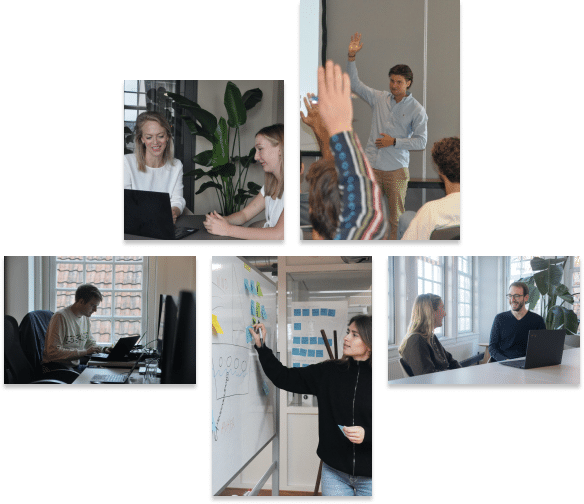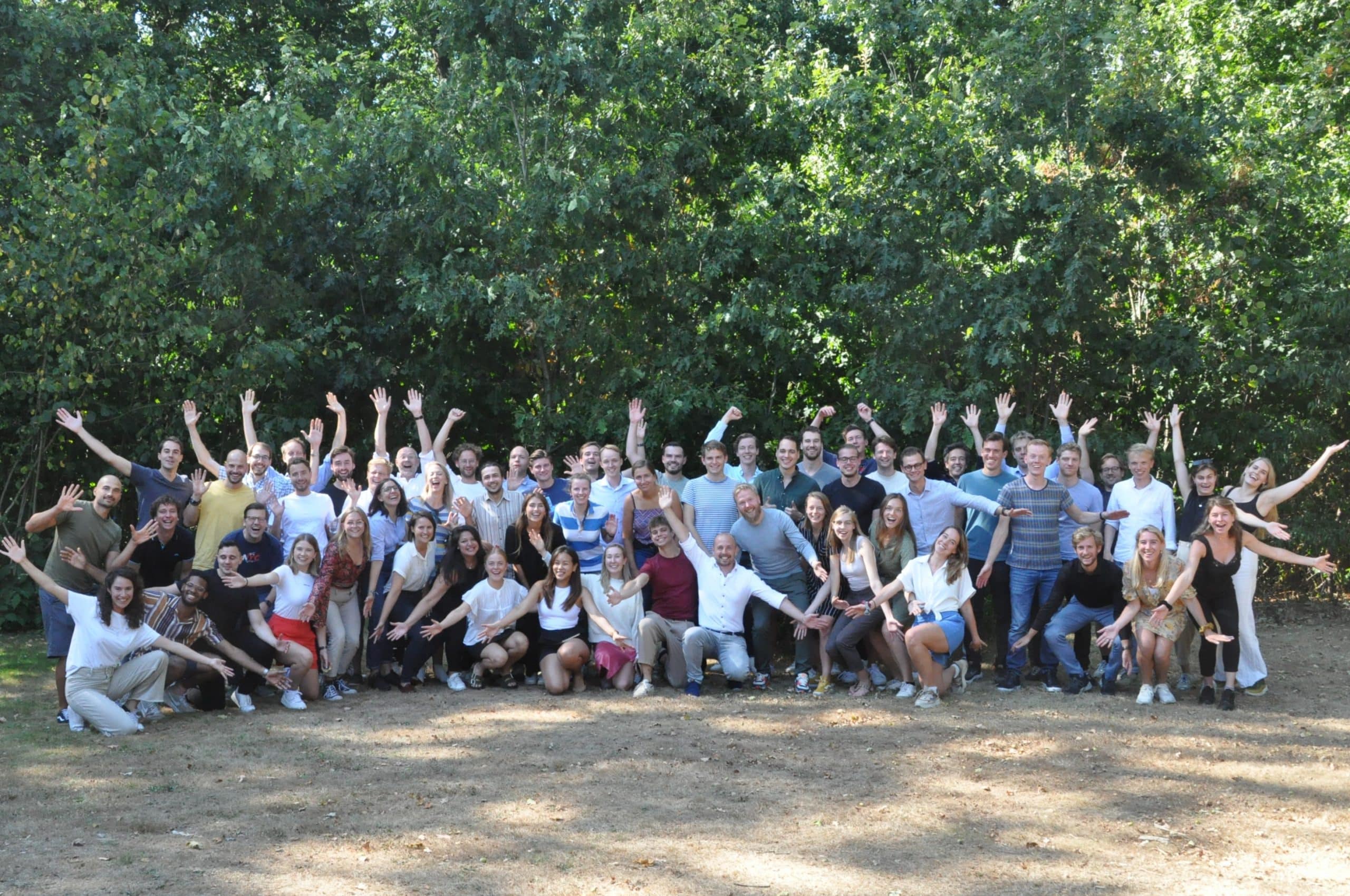At Amsterdam Data Collective (ADC), we realise the potential of data for a better future. That is why our entire team participates in a yearly Collective Week. During this time, we work on pro-bono projects that help organisations who cannot afford our services make a positive impact. It is also an opportunity for us to continue strengthening our Collective skills and culture.
This September we headed to the Veluwe for the fourth annual Collective Week. About seventy ADCers worked on twelve diverse projects. They addressed issues such as food waste, human trafficking, debt among youth, and much more. We enjoyed helping each organisation transform its ideas into a proof of concept that created a tangible data-driven impact.
“The ADC Collective Week is my favourite week of the year because we get to work together with some great organisations and people. It gives us the opportunity to learn new skills and further strengthen our Collective culture.”
– Rik van der Woerdt (Co-Founder & CEO)
Team building and Collective Feeling
The collaboration during this week allowed us to pay closer attention to the Collective that we form. We worked hard and played hard together, giving ourselves the chance to get to know each other even better. This was especially important as we welcomed eight new colleagues during this week!
The morning activities focused on setting the tone for the day through movement, such as running, yoga, and swimming in the hotel’s pool. Meanwhile, the evening activities were all about having fun and creating shared memories through a charity poker tournament, pub quizzes, and cheering on the Ajax game. At the end of the week, we toasted on the ceremonial closing and danced the night away.
“During the week, we have short workshops on ‘ways of collaborating’ where the leadership team actively shares their insights on specific elements of our Collective culture. We walk the talk during the Collective Week.”
-Marcel van Wersch (COO)
ADC Way of Collaborating
We aim to be the best by creating the biggest positive impact. We do this by challenging each other and ourselves during trainings, team activities, and project work. At ADC, we foster a safe environment where we are not afraid to take risks or make mistakes; it is all part of learning and development.
After the first day of hard work, we participated in a ceremonial opening. This was the perfect moment to connect as a Collective and develop the right mindset for the rest of the week. Throughout the week we were invited to take a step back from our projects to consider several questions. How do you guard your own boundaries while having little time for yourself? What is the best way to address an annoyance in your project group? And when, to whom, and how do you give and ask for feedback?
At the end of the week, we actively stepped out of the Collective again during the ceremonial closing where we shared both group and one-on-one memories. This way we make the most out of the week, creating a safe environment where we can care and dare.
Positive Impact: Pro Bono Projects
Rik van der Woerdt (Co-Founder & CEO) explains how we increased our positive impact by using our data science expertise: It is ADC’s mission to initiate and contribute to the successful completion of the most impactful data science initiatives. By design, the benefits of these initiatives should outweigh the investment required. But an investment is still required. For some organisations, especially non-profits, this investment is too steep, resulting in us missing opportunities to create a positive impact with data science. Therefore, we dedicate a full week every year to help these organisations.
Below is a summary of the twelve pro bono projects we worked on during this week.
Civinc
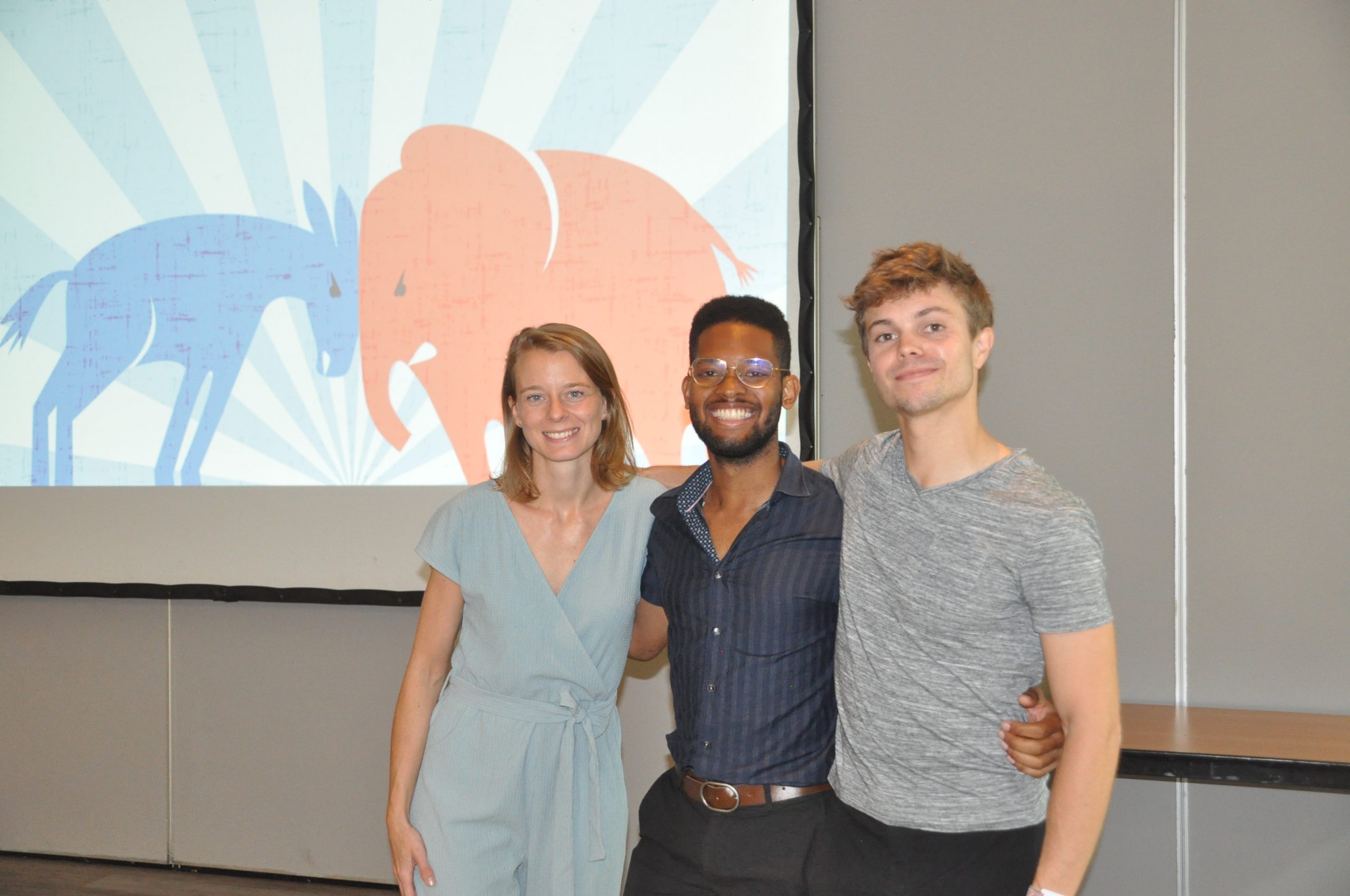
Djoeke, Didier, Egon, and Saskia worked on a pro bono project for Civinc. The organisation’s mission is to burst bubbles by developing innovative conversation tools that increases mutual understanding. They empower citizens, students, and employees who think differently to freely exchange ideas, learn from each other, and develop vital civic skills.
Djoeke (Senior Consultant): “We built a data analysis pipeline which enables Civinc to deepen the data dimensions of their data. The pipeline includes not only data transformations and basic statistics, but also more complex analyses such as sentiment- and emotion-analysis. These meaningful insights support Civinc in their mission to burst even more bubbles.”
Socialdebt
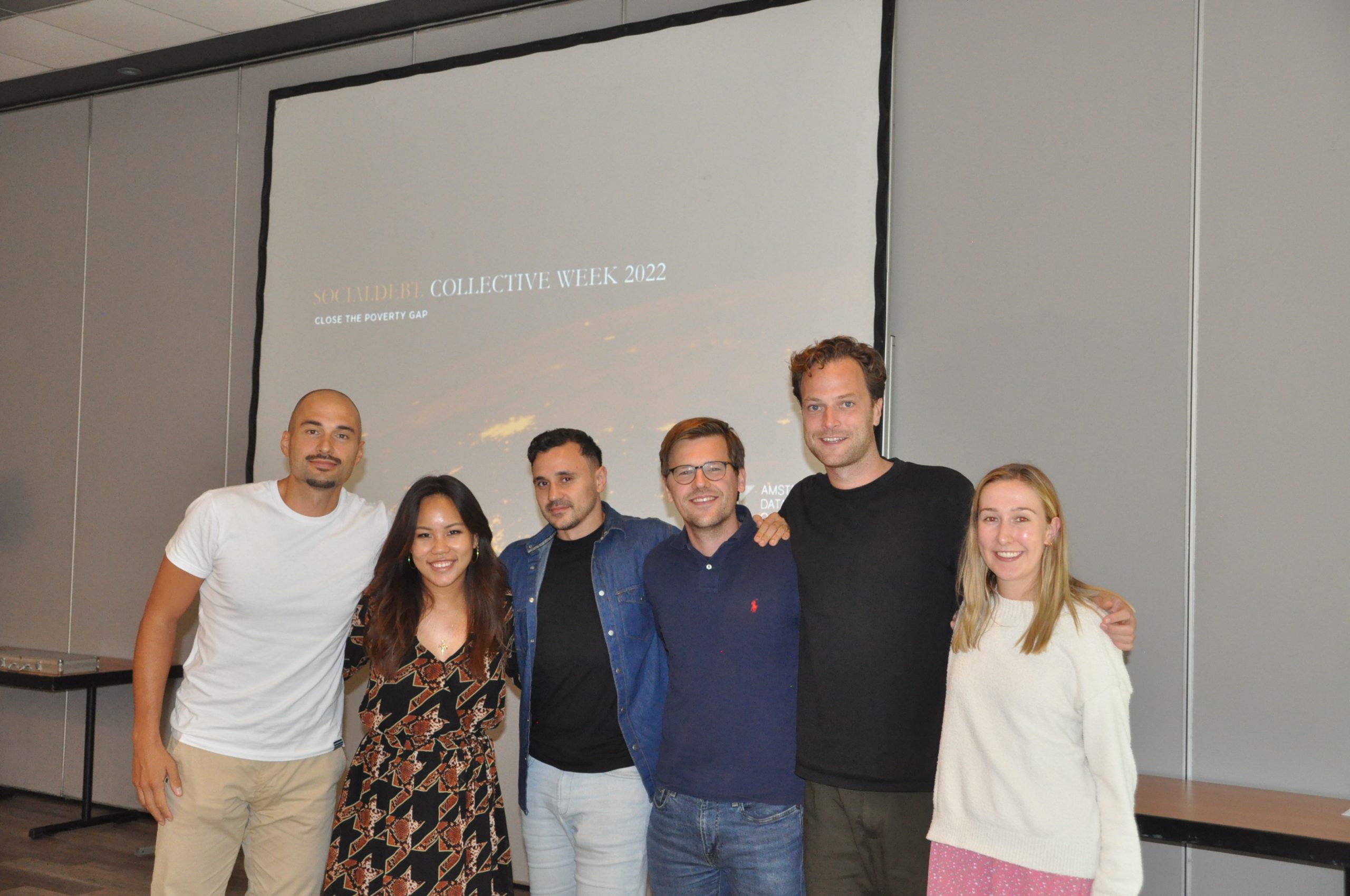
Jaap, Lasse, Ewout D, Joanneke, Emma S, Valerie, Kevin, and Mattia worked on a pro bono project for Socialdebt. The foundation helps make paying debts fairer for young people in the Netherlands. They do so through personalised repayment plans, peer-to-peer guidance, eliminating fines and interest, and rewarding good financial behaviour.
Jaap (Project Lead): “The goal of this week was to help Socialdebt with their growth plans and deliver several tools that help them scale up. We were able to deliver a strategic roadmap and four prototypes that allow Socialdebt to help more people, and as such, increase their impact on society!”
Too Good To Go
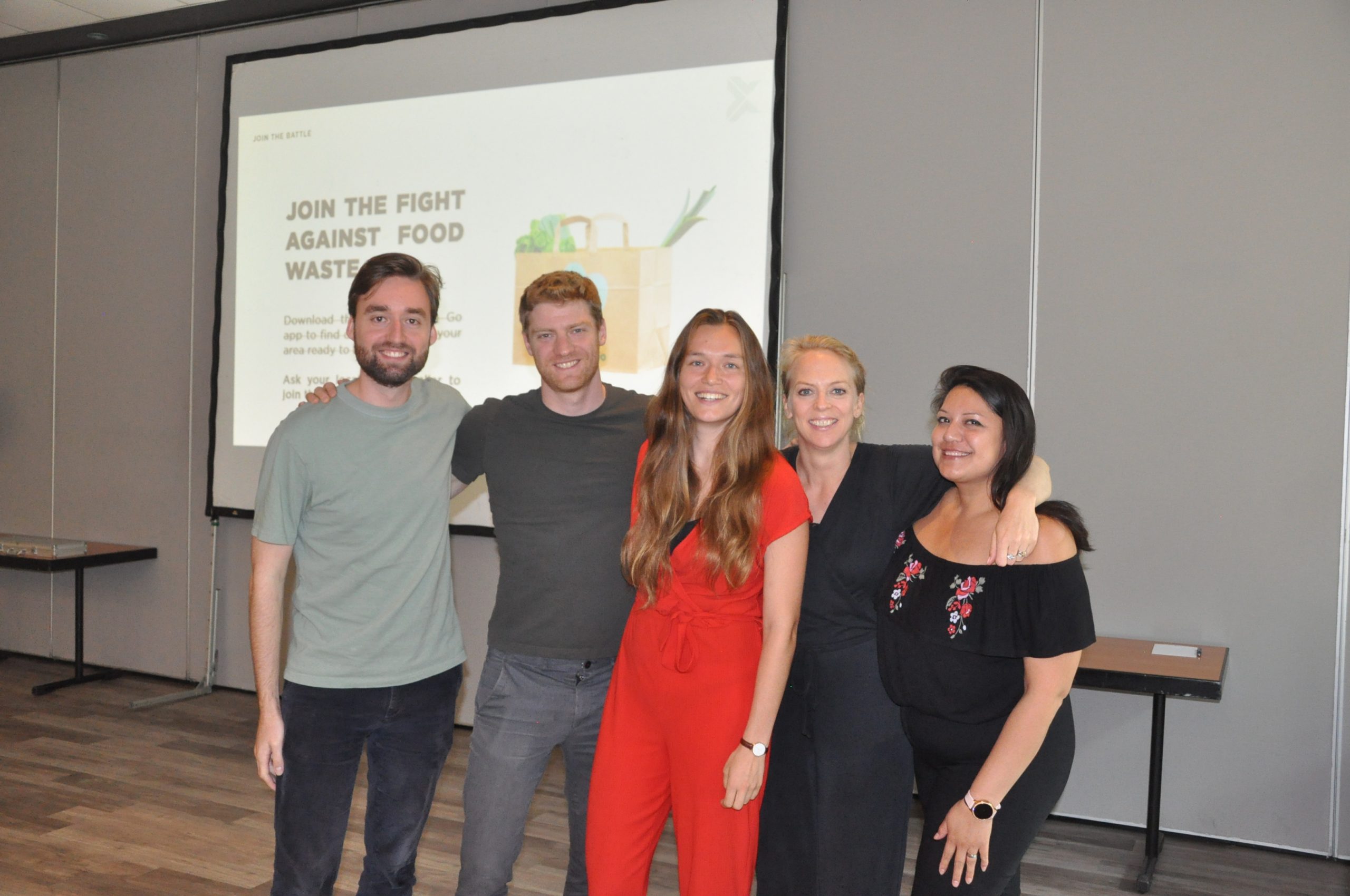
Hans, Fleur, Lars H, Edward, Rianne, and Odemaris worked on a pro bono project for Too Good To Go. The online platform is reducing food waste by connecting customers to restaurants and stores that have surplus unsold food. The demand by customers is big and increasing. In order to meet this demand, Too Good To Go needs to grow their supplier base.
Hans (Practice Lead): “The main barrier for Too Good To Go to save even more meals is the supply of food packages. Our team developed a model predicting if a store will churn from the platform in the coming period, so that TGTG can intervene and secure the supply of food that otherwise will go to waste.”
Corekees
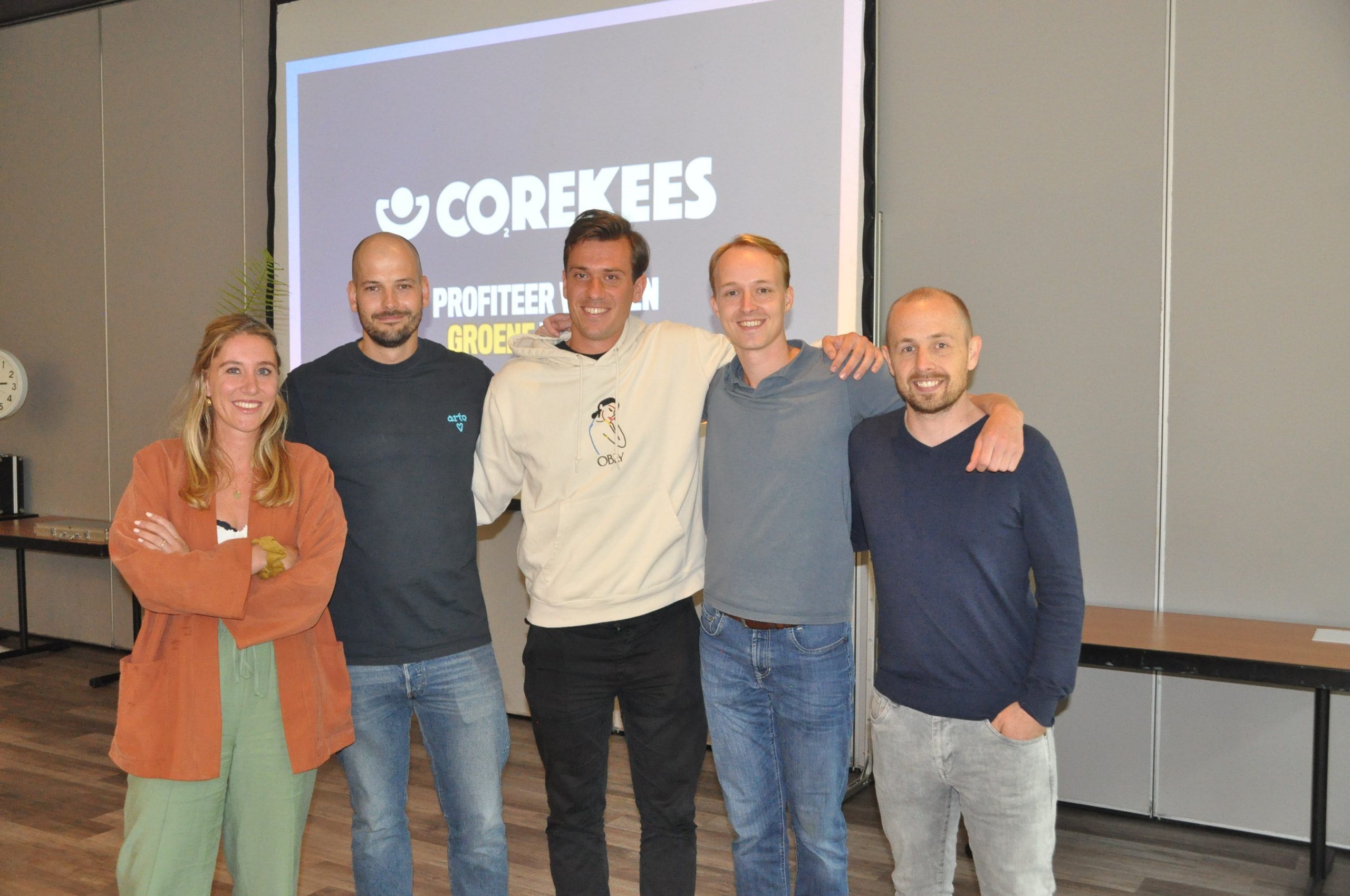
Lars de Ruiter, Henriette, Casper, Frank and Jelmer worked on a pro bono project for Corekees. Corekees is a sustainable investment platform that enables its investors to make a lasting impact through their sustainable investment projects.
Jelmer (Senior Consultant): “Our team developed a dashboard to help Corekees create insights into its investors, investments, and trends. Besides a dashboard, ADC also provided a roadmap on how to create a scalable data infrastructure.”
Multi Intelligence Center
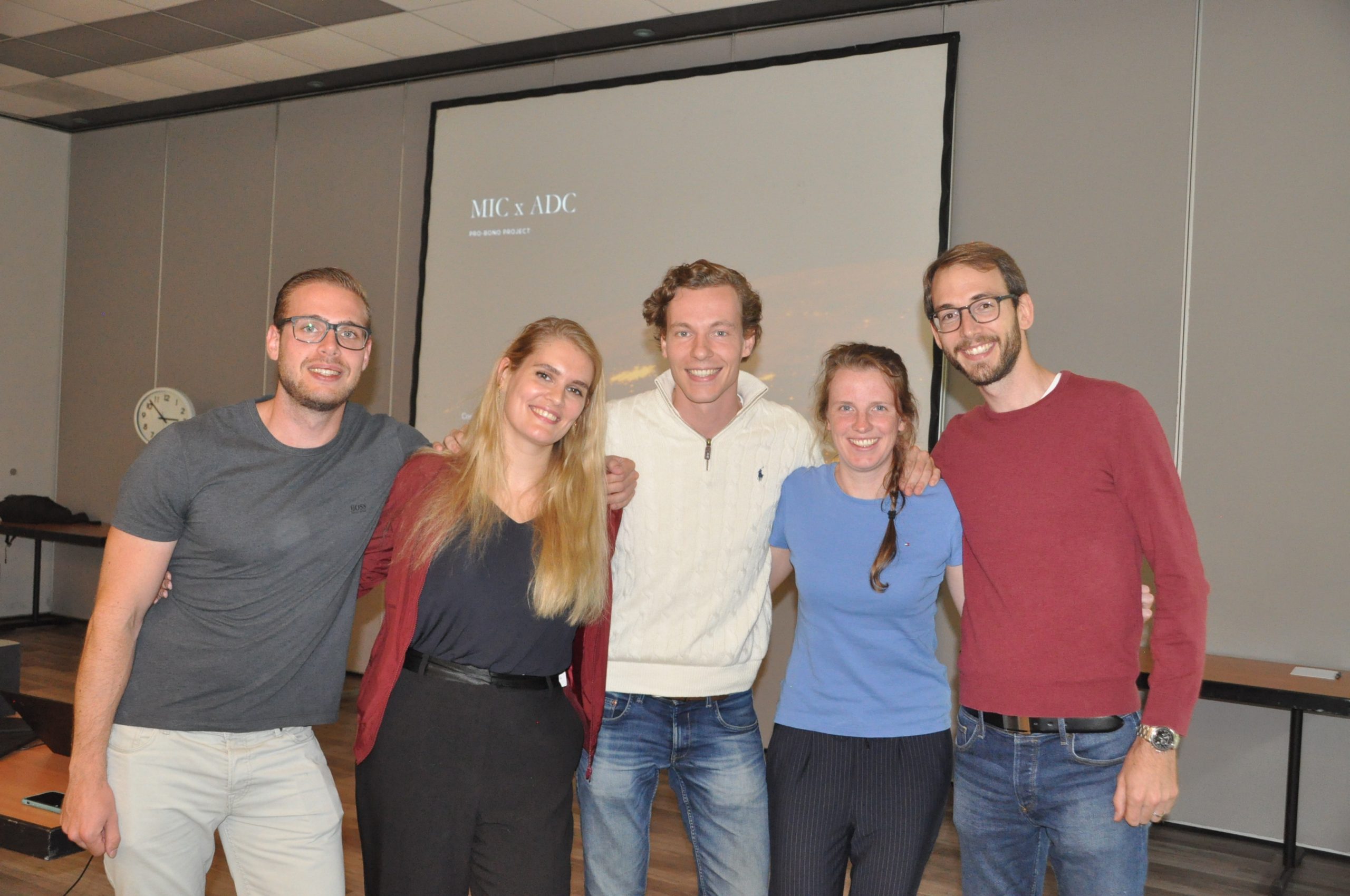
Elianne, Mathyn, Diederik, Sophie, and Maxime worked on a pro bono project for Multi Intelligence Center (MIC). MIC aims to use AI and data analysis to predict and prevent incidents to ensure that emergency services can work more efficiently, effectively, and safely.
Elianne (Project Lead): “Changes in our climate lead to more common occurrences of prolonged heat, draught, and heavy storms. This can cause significant impact and disruption in society. By combining weather data with incident data from the Rotterdam-Rijnmond fire department, we built and implemented a prototype for predicting incidents based on data.”
AI4Kids
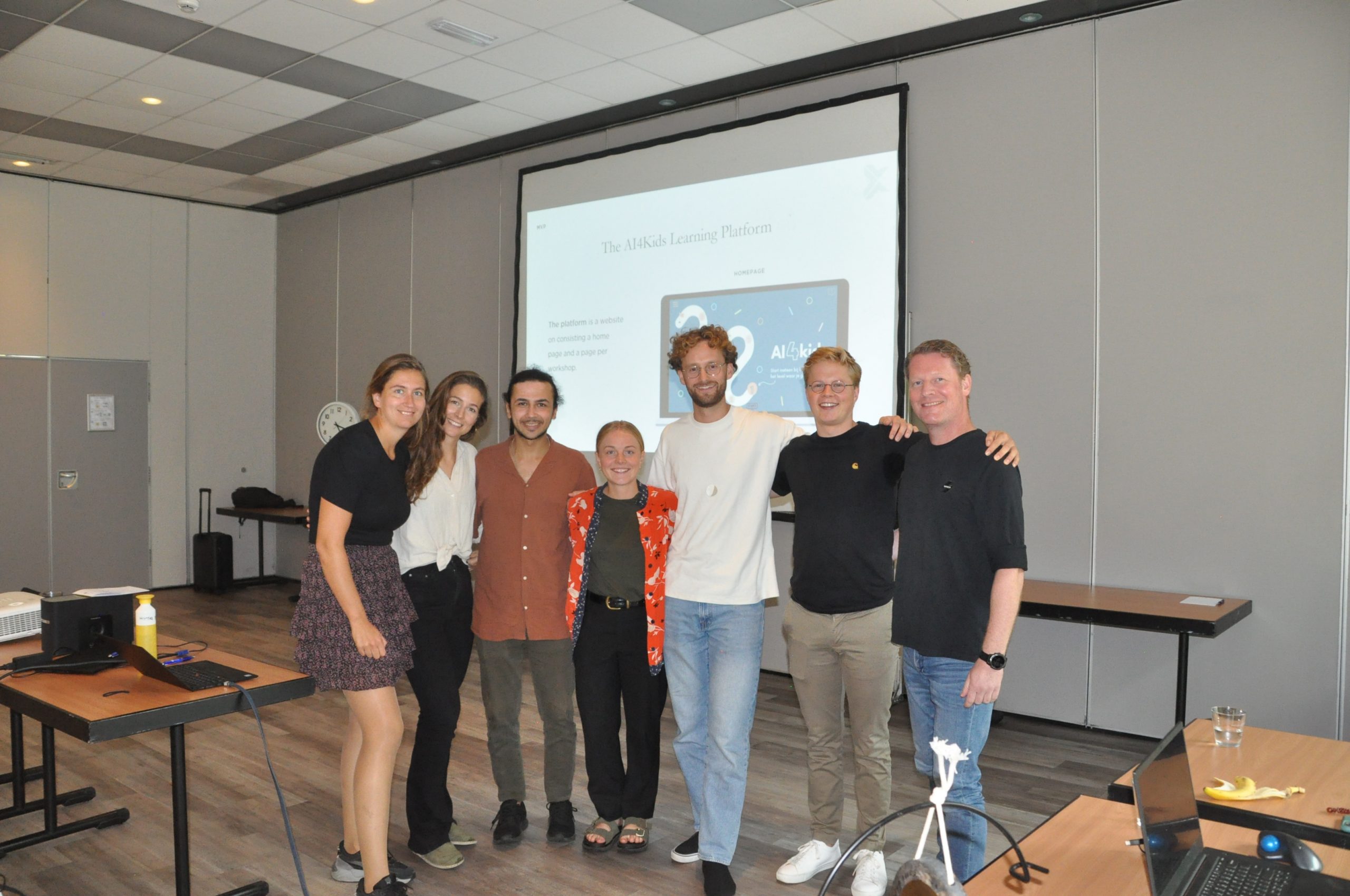
Dennis K, Guus, Vivienne, Moira, Eran, Ditte, and Alex worked on a pro bono project for AI4Kids. The AI4kids program is an initiative by Amsterdam Data Collective to teach kids in disadvantaged neighborhoods about the possibilities of Data Science and Artificial Intelligence. Their ultimate goal is to increase the equality of opportunities.
Dennis (Consultant): “We created a new workshop to teach youth about the risks of data-driven recommendations in the context of social media. In addition, we started to develop an online learning platform on which we will host free workshops on various AI related topics.”
Delterra
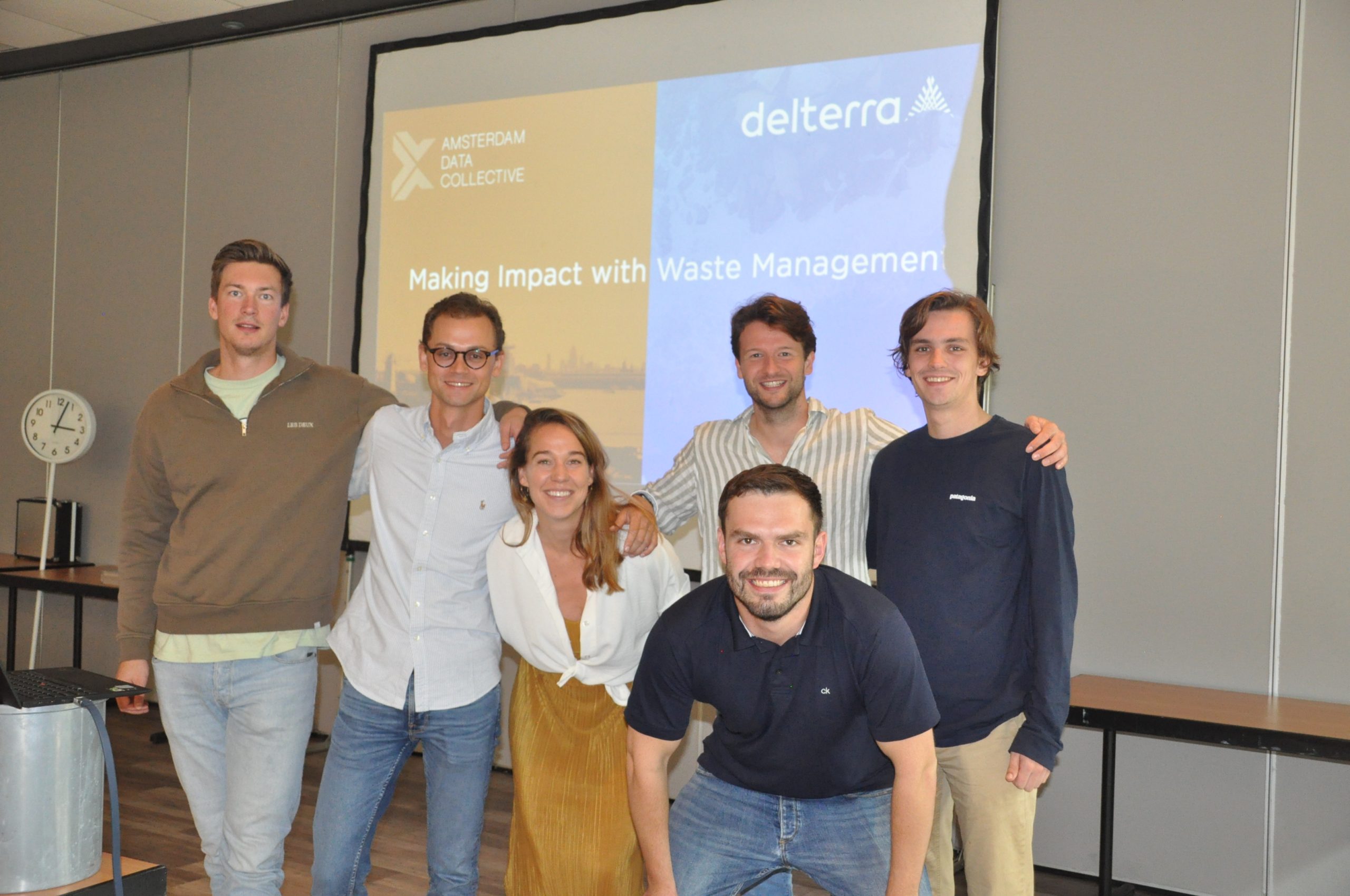
Max, Julia, Lourens, Sean, Rens, and Hidde worked on a pro bono project for environmental non-profit Delterra, an international organisation with one of their flagship initiatives in Indonesia. Delterra provides community-led, (financially) sustainable waste management and recycling to address the widespread dumping and burning of waste occurring throughout Indonesia. Their programs transform local waste management facilities through, for example, behaviour change, education, operational improvements, and demand incentives. As a result, communities can offer sustainable and affordable waste collection and processing (including recycling) and waste workers can enjoy safer working conditions.
Max (Consultant): “We built a real-time dashboard that visualises the key metrics over time. This allows Delterra to track its environmental and social impact. Moreover, we advised on making the organisation even more data-driven, so that they can use their data to its fullest potential.”
Stitching Sustainable Rescue
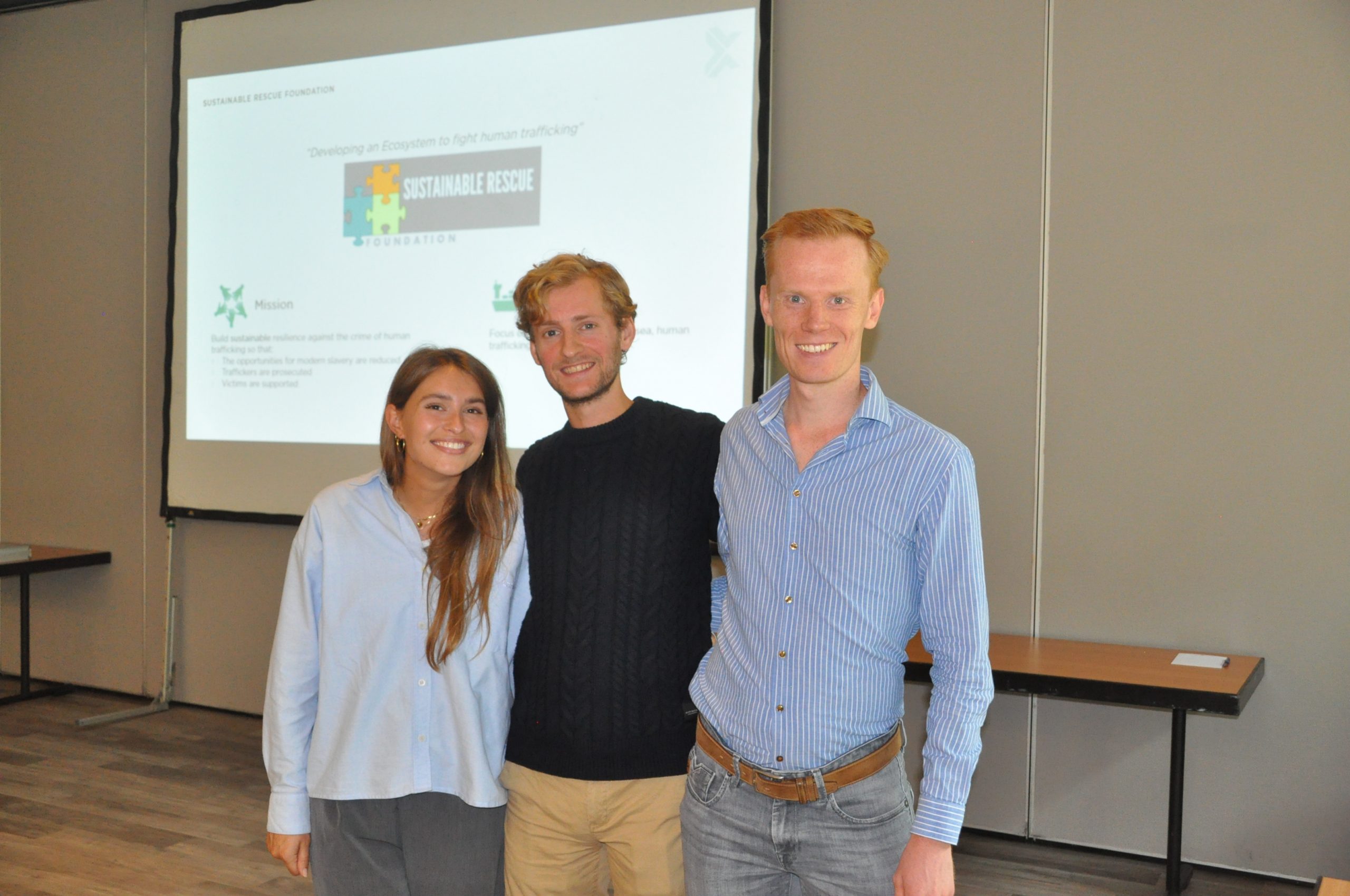
Emma W, Juliette, Josephine, Duco, and Valijn worked on a pro bono project for Stichting Sustainable Rescue. The foundation is committed to help organisations disrupt the human trafficking exploitation model. They do so by integrating existing business best practices, digital technology, academic concepts, and legislation to facilitate collaborative work environments.
Juliette (Junior Consultant): “The Automatic Identification System is an automated, autonomous tracking system that is extensively used in the maritime world to exchange navigational information. Our challenge was if we could use AIS anomalies as a surveillance tool for criminal activities. Our team created a proof of concept of a model to pinpoint ships involved in suspicious situations based on two anomalies. We developed a roadmap to implement a real-time risk prediction model for ports.”
Innofest
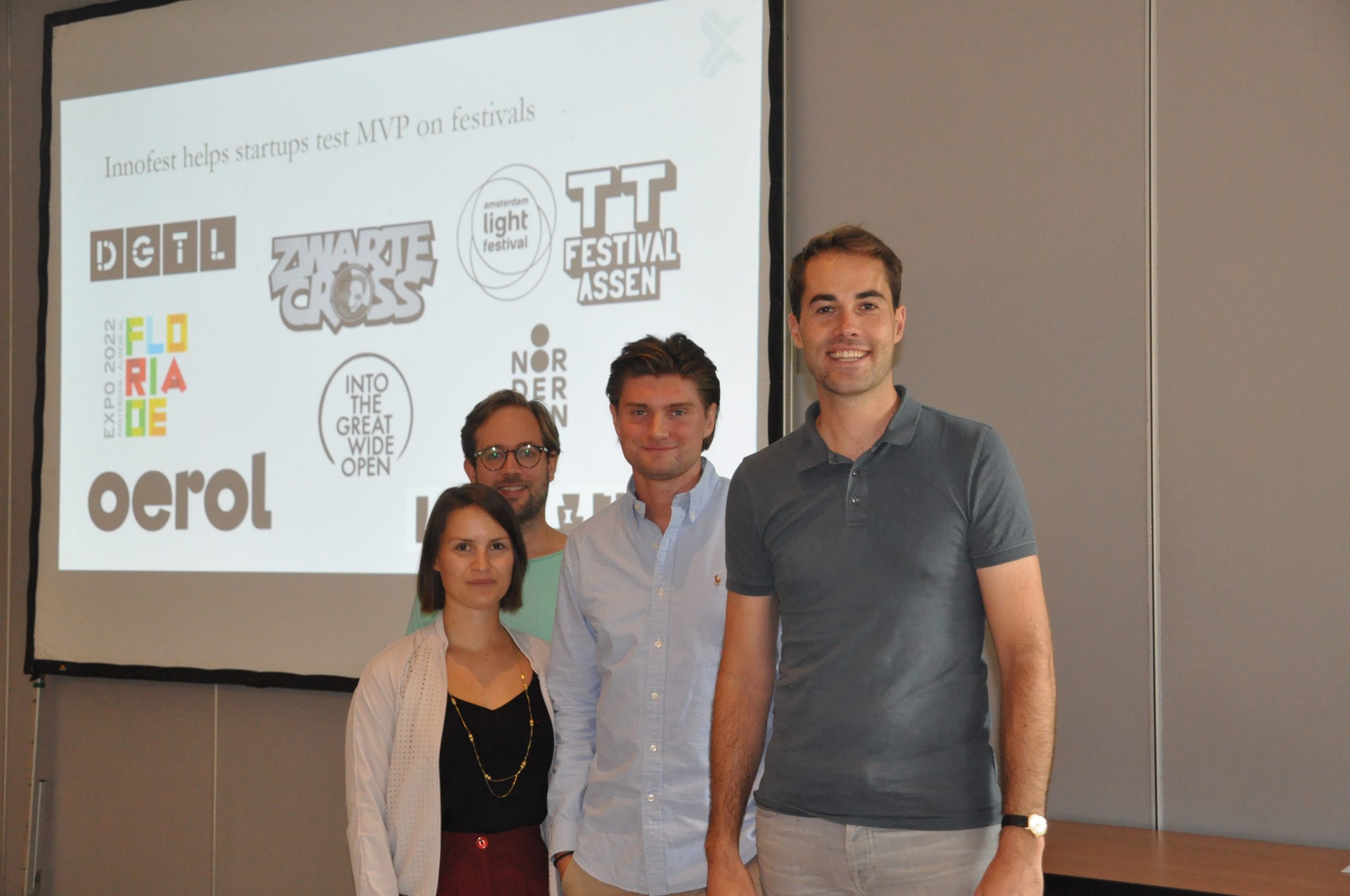
Rik, Anja, Thony, and Matthijs worked on a pro bono project for Innofest. The organisation connects start-ups and their innovations, including the corresponding test questions, to the right living labs and partners. This includes testing at festivals, campgrounds, and biergartens.
Anja (Project Lead): “We performed a small-scale organisation scan together with the client, where we identified two data use cases as the most impactful to Innofest’s services. ADC kick-started the implementation of the two use cases and gathered recommendations for a few changes to its core processes. This allows Innofest to leverage our work and embed a more data-driven approach.”
HulpHond Nederland
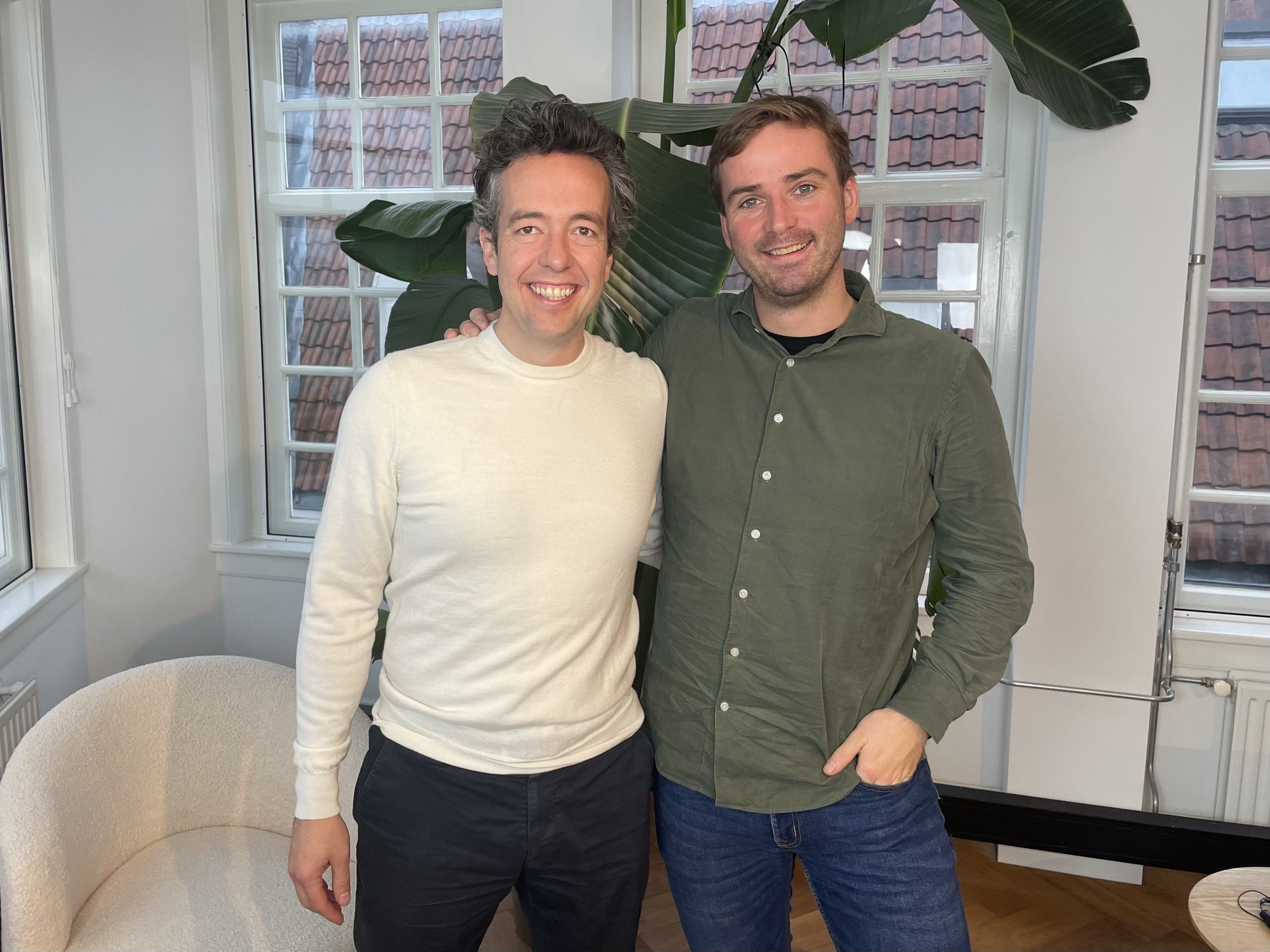
Rogier, Dennis D, Thomas, and Demi worked on a pro bono project for HulpHond. The organisation helps people with a physical or mental care requirement by deploying an assistance dog or through systemic experiential therapy.
Rogier (Project Lead): “Hulphond offers mental health care for adults with PTSS. The cost of treatment is not reimbursed by most health insurance companies. We helped HulpHond by building a strategy to convince health insurance companies to reimburse the cost of treatment. Data analysis showed that the treatment through HulpHond is cost effective, leads to significant improvement in treatment results, and increases patient satisfaction.”
EpilepsieNL
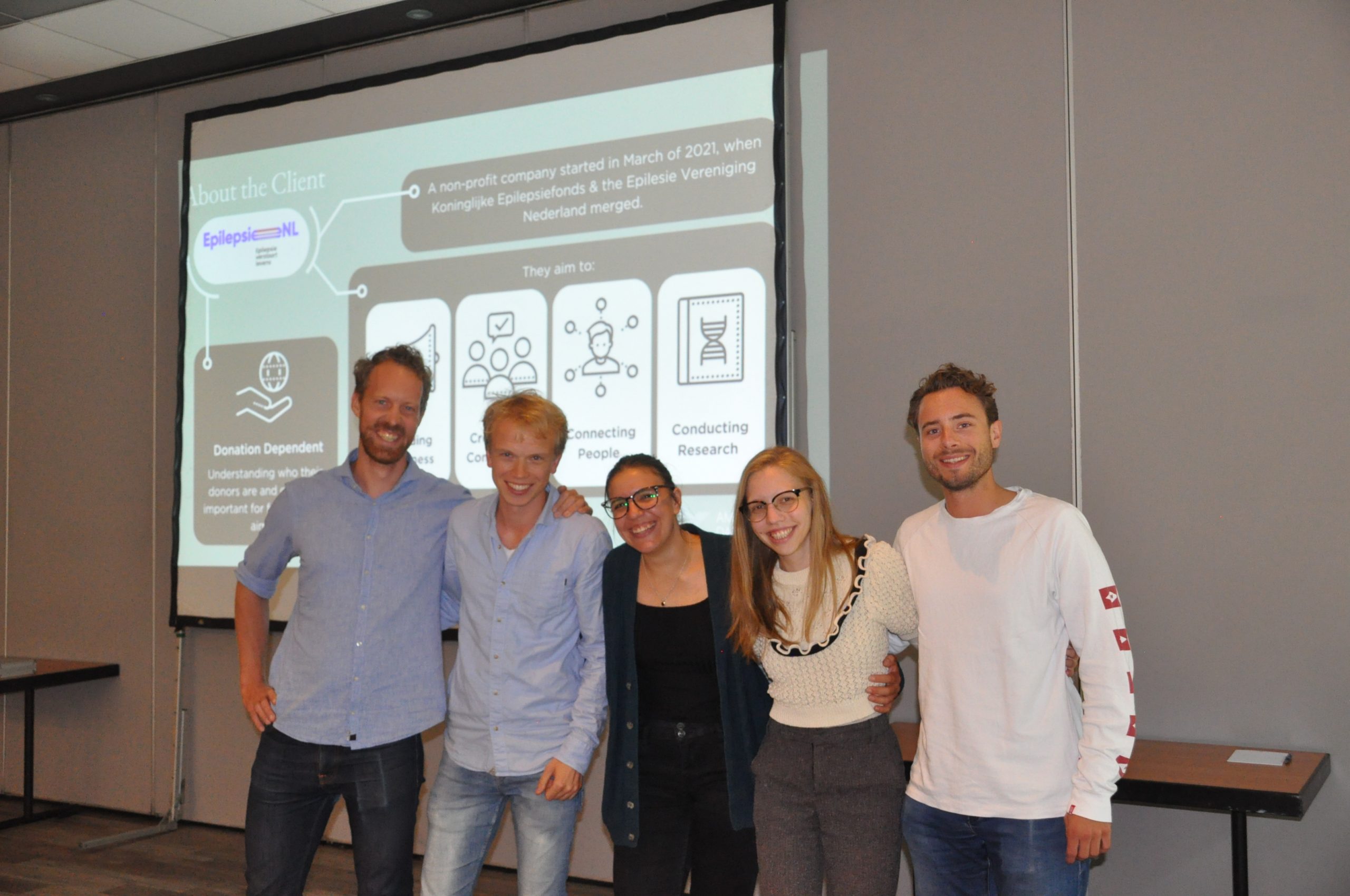
Rick, Joost, Eszter, Nino, and Kayla worked on a pro bono project for EpilepsieNL. The foundation involves a community of over 200,000 Dutch people with epilepsy and their supporters. They work to improve the quality of life of people with epilepsy through advocacy, relationship building, and funding research.
Rick (Project Lead): “We made a Model-view-presenter (MVP), including a model that identifies contacts in the existing database of EpilepsieNL who have a high probability of becoming a donor.”
Dental Predictions
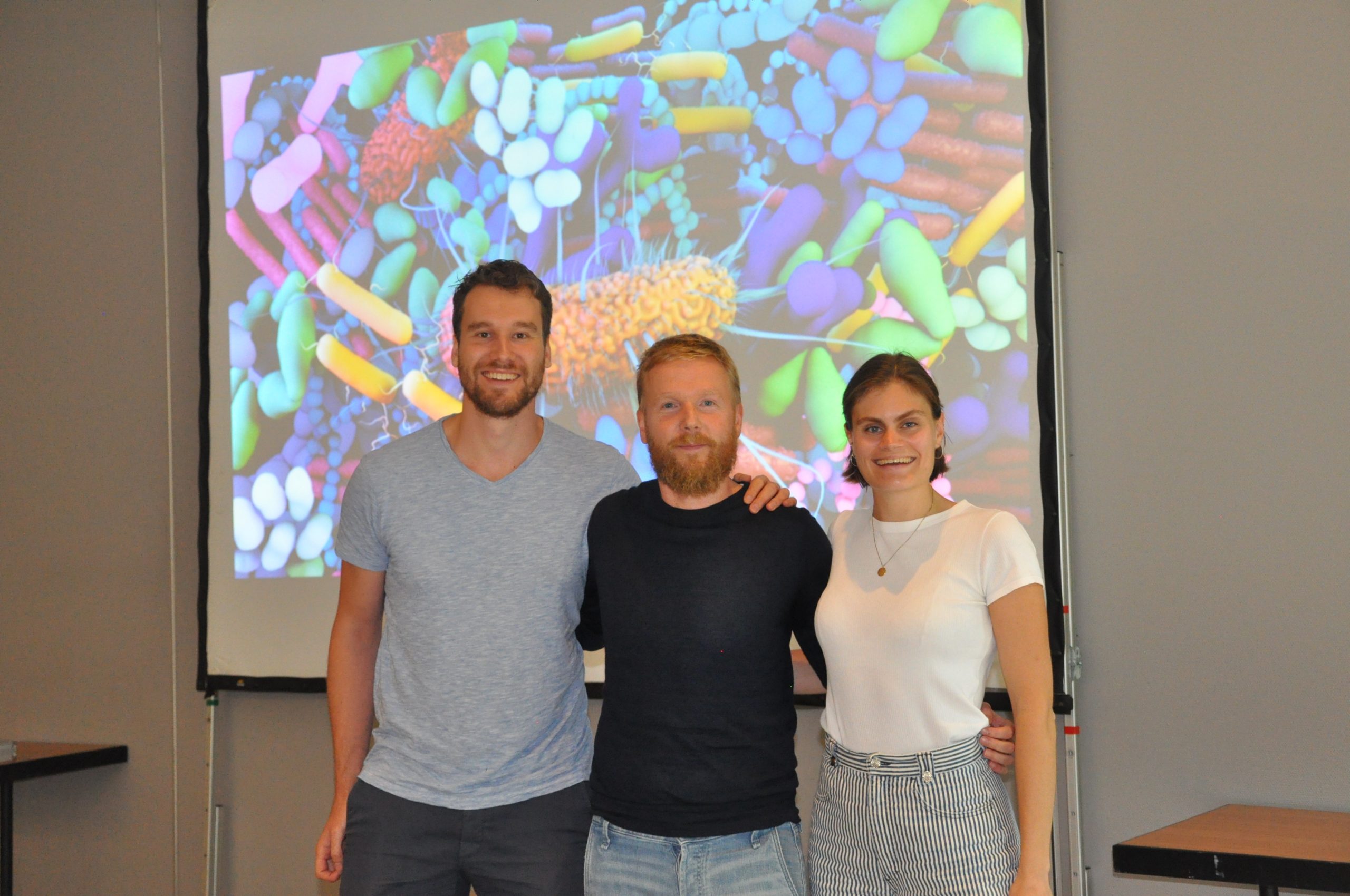
Sjors, Amelia, and Ewout N worked on a pro bono project for dental practices. The goal of the project was to discover whether we can make predictions, such as an individual’s likelihood of developing cavities, for dentists and dental hygienists through a bacterial analysis of the mouth.
Sjors (Project Lead): “Labour shortages in healthcare are increasingly becoming a problem. By using advanced models to aid physicians and dentists in making an accurate diagnosis, we hope to alleviate the burden on the healthcare system and ensure everybody has access to care. We built a model that relates the oral microbiome to adverse health outcomes. We hope to continue the collaboration in the form of a start-up company.”
Let's shape the future
Feel free to reach out to us for more information by contacting Merel van Geel or checking our contact page.

What stage is your organisation in on its data-driven journey?
Discover your data maturity stage. Take our Data Maturity Assessment to find out and gain valuable insights into your organisation’s data practices.
